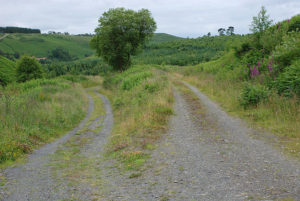 As sketched in the previous post, I believe modernity to be an unsustainable flash that will not persist into future millennia. Uncomfortable with untethered speculation, I have said little about what might come after, but feel I owe something in this vein. Semantically, what follows the modern age must be the post-modern age, right? Except that name is already taken by a rather inane school of thought that may be even worse than modernist thought (it actually does not fundamentally refute modernism anyway, just throws sand into any conversation).
As sketched in the previous post, I believe modernity to be an unsustainable flash that will not persist into future millennia. Uncomfortable with untethered speculation, I have said little about what might come after, but feel I owe something in this vein. Semantically, what follows the modern age must be the post-modern age, right? Except that name is already taken by a rather inane school of thought that may be even worse than modernist thought (it actually does not fundamentally refute modernism anyway, just throws sand into any conversation).
Despite my disdain for post-modernism, I will appropriate the term for what it will likely come to mean in centuries hence (long after people have finally forgotten the silly modern version of post-modernism). I feel better already.
The simplest explanation for why I have not written much on post-modernity is that I don’t feel I have much to say. The range of possibilities is quite large, and I would be a fool to pretend that I—or anyone, really—can paint a credible picture. I’m virtually certain I know how humans will live on the planet tomorrow, fairly sure I could paint an accurate picture for life one year from now, reasonably confident about a decade out, pretty damned fuzzy on a century from now, perhaps a little more clear a millennium into the future (as most of modernity has melted by then), have a decent guess for several million years hence (less likely to still have homo sapiens), and am increasingly certain when the number turns to billions of years (complex life on Earth extinguished). For me, the hardest part is the century scale: the messy, chaotic transition likely characterized by de-industrial scavenging.
…click on the above link to read the rest of the article…









